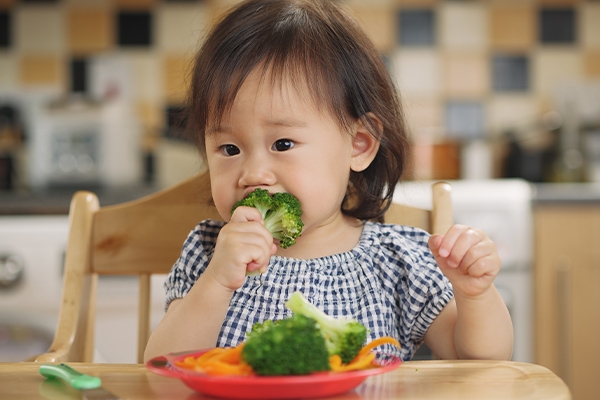Sugar and Children's Health: Hidden Risks

"Junk food is high in sugar and inflammatory," said Dr. Piprim Basarah Yanuarso, Chairman of the Indonesian Pediatrician Association. "As a result of this, many children now have hypertension and type II diabetes."
Diabetes, which is characterized by high blood sugar levels, affects both adults and children.
According to data from the Indonesian Pediatrician Association or IDAI, the number of children with diabetes increased 70 times between 2010 and 2023. An uncontrolled lifestyle is to blame for the rise in diabetes cases. Children consume a greater amount of fast food and sugary beverages.
This trend is dangerous in the future, and parents should take precautions to limit their children's consumption of sweet foods and beverages. Here are some pointers.
Instill healthy eating habits

It may be difficult to keep children away from sweet foods and beverages. Rows and rows of sugary foods like ice cream, chocolate, and candy are available everywhere we go. They all seem to be beckoning us closer. Worse, no child is capable of repelling them.
This is where parents can help. Excessive sugar consumption has a clear negative impact on children. Obesity is one of them.
Hypertension and type II diabetes are also serious threats. They will also experience bone and joint problems, as well as some types of cancer.
According to the IDAI, there are approximately 1,645 diabetic children in 15 Indonesian cities. High sugar intake is one of the causes. Jakarta and Surabaya have the highest rates.
That’s why it is critical for parents to control their children's behavior and habits. Instill healthy eating habits in children at a young age. For example, show them how to eat healthily. Arrange a variety of vegetables and fruits on the dinner table. Show your children how to eat them and explain the benefits they provide to the body.
Use tricks if your children are still having difficulty eating it. Add spinach or carrots, for example, to their favorite omelet. Alternatively, place bananas on pancakes to get them to eat the fruit.
Many kids enjoy going shopping. Introduce fruits and vegetables with this activity. First, ask the child to make the menu. Then you go grocery shopping together.
Parents can begin teaching older children how to read packaging labels so that they can make healthier food choices in the future.
When instilling these healthy habits in their children, parents should consider more than just the amount of sugar they consume, emphasizing a balanced and nutritious diet to help them live healthier lives.
Ensure adequate nutrition for children

Healthy food provides balanced nutrition, which is essential for the growth and development of children. It is critical that children get enough calories and limit their sugar intake.
For children, the Indonesian Ministry of Health recommends a daily sugar intake of 50 grams, or four tablespoons. Too much sugar can lead to malnutrition because it can replace essential food groups like protein, fruits, vegetables, milk, and grains. It can also impair the body's ability to digest vitamins and minerals.
Parents should control the types of food available at home, both for main meals and snacks, to ensure that children receive adequate nutrition.
While snacks are still necessary, fast food and low-nutrient snacks such as candy and chips should be avoided. Try substituting fruit snacks. If your child still has trouble snacking on fruit, it can be a challenge for you to be creative in serving fruit as a delicious and fun snack!
Detecting hidden sugar

It is critical for parents to keep track of the sugar content of the foods and beverages they serve to their children. Sucrose, fructose, lactose, dextrose, glucose, brown rice syrup, corn syrup, and sucralose are all examples of sugar. Sugar can also be disguised as a healthy ingredient in foods such as granola, yogurt, cereal, and pasta sauce.
Parents should read the labels on food and beverage packaging carefully. It is best to avoid foods and beverages with added sugar for children under the age of two.
Encouraging children to drink water and milk instead of juice, soda, coffee, or tea can help them consume less sugar. Lactose, protein, calcium, vitamin D, and other essential nutrients are found in formula milk. Consuming soda or juice instead of milk, on the other hand, can result in calcium deficiency, which is required for proper bone growth.
What is the impact of excess sugar consumption on children?

Excess sugar consumption can be harmful to children's health. Why? Because it can cause tooth decay in the short term. Children can avoid costly dental treatment by limiting their intake of added sugar.
Furthermore, excessive sugar consumption can lead to a variety of diseases. If your child is frequently tired and unable to concentrate, it could be due to a high sugar intake. Excessive sugar consumption can also cause skin itching, such as eczema. Because of their high sugar content, doctors frequently advise limiting processed and fast foods.
Sugar also causes an increase in insulin, which can lead to inflammation.
Nestle Research Center researchers discovered that excessive sugar consumption contributes to the rise in asthma incidence among children and adolescents.
Sugar consumption can cause the airway's immune system to become inflamed, resulting in narrowing and mucus production. Asthma symptoms such as wheezing and shortness of breath can be exacerbated by this.
***
How can you ensure that your child consumes low-sugar foods and beverages? Pay attention to the nutrition label to ensure your child consumes low-sugar foods and beverages. Choose cereal with the fewest sugar additives. Choose fruits and vegetables over packaged products for an afternoon snack.
By providing healthy options to children at a young age, they are more likely to develop a preference for healthy foods as they grow older.
If you have any questions about diabetes, please click on WhatsApp or visit The GWS Medika Clinic, a health clinic in Jakarta.



